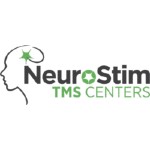Grand Opening of Lakewood, WA NeuroStim TMS Treatment Center to Expand Treatment Capabilities
Industry: Healthcare
Leading TMS (Transcranial Magnetic Stimulation) treatment provider in the Pacific Northwest relocates to a larger facility to allow providers to help more individuals in the Lakewood-Tacoma area overcome symptoms of depression, OCD, PTSD, anxiety, and other mental health disorders.
Washington, D.C. (PRUnderground) September 12th, 2022
With seven locations in the Puget Sound area, NeuroStim TMS provides TMS (transcranial magnetic stimulation) treatment to patients struggling to overcome symptoms of depression, anxiety, OCD, PTSD and other mental health disorders. Their specialized providers have delivered over 85 thousand non-invasive TMS treatments, and their patients report results better than the national average. To increase its capacity to provide cutting-edge treatments to patients in the Lakewood-Tacoma area, NeuroStim has moved to a neighboring building, which will be its largest facility to date. NeuroStim is holding a public Open House on Thursday, September 15th, 2022, from 5-7pm at 9116 Gravelly Lake Drive SW, Lakewood, WA 98499. For more details, interested parties can visit www.NeuroStimTMS.com/openhouse.
NeuroStim provides patients for whom medication has been ineffective with a non-invasive, non-sedating, FDA-approved alternative depression treatment. Its customizable treatment has been proven safe and effective through clinical trials at major medical centers, including Walter Reed Medical Center, the Mayo Clinic, Stanford, Harvard, and Johns Hopkins. Among patients treated at NeuroStim Treatment Centers since 2018, more than 70% improved by 50% or greater, and 46% experienced a complete remission of their symptoms, adding to the library of data supporting the efficacy of TMS therapy.
“Moving to a larger facility is a great milestone for the whole NeuroStim team,” remarked NeuroStim CEO, Walt Guidice. “The fact that we need a larger facility illustrates that TMS is working for our patients. We are excited to welcome more people to meet with our skilled staff and learn how TMS can help them improve their outlook on life and start living life to its fullest again.”
The new Lakewood, Washington facility is located right next to their old location, keeping treatment close and convenient for current patients. Psychiatrist and graduate of Harvard Medical School, Dr. Nick Weiss, will oversee the new facility as Medical Director. Dr. Weiss brings more than 20 years of experience diagnosing and treating mental illness. “I was once a huge skeptic about TMS treatment, but I have seen it often work wonders in my patients when everything else has failed, so I have become a huge believer and advocate for TMS,” Dr. Weiss stated.
“Many of the people who come to us are beaten down by symptoms,” said Guidice. “They’ve talked to their doctor, they’ve tried medications, they’ve tried to push through, and they’re not sure what to do. However, when they experience TMS Therapy it often completely transforms them. You can see it in their eyes — they have a new lease on life. Moving into a larger, state-of-the-art treatment facility will allow us to give that gift to more people by experiencing true hope, healing, and health.”
Staffed by industry-leading doctors and professionals specializing in TMS therapy, NeuroStim TMS prides itself on providing patients with the highest standards of care and respect. Designed to feel more like a spa than a sterile medical center, their treatment centers help patients feel comfortable and welcomed. To learn more about NeuroStim TMS and how their state-of-the-art TMS Therapy can help relieve mental health symptoms, call (888) 963-9467 or visit www.NeuroStimTMS.com.
About NeuroStim TMS Treatment Centers
NeuroStim TMS Center is a leading expert in TMS treatment with patient outcomes higher than national averages. Their mission is to restore hope and improve people’s lives by pioneering the latest cutting-edge treatments for people suffering from clinical depression and similar debilitating disorders.


